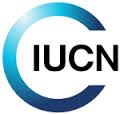Community / Land projects / Partnerships and Innovative Financing to Mainstream Biodiversity and Sustainable Land Management in the Wet an
Partnerships and Innovative Financing to Mainstream Biodiversity and Sustainable Land Management in the Wet an

€3863834.652
11/22 - 11/22
Achevé
This project is part of
Implementing Organisations
Donors
Data Providers
Objectives
To conserve globally significant biodiversity by improving land management practices in tea and rubber plantation areas in the Wet Climatic Zone through innovative Private-Public-Community Partnerships
Other
Note: Disbursement data provided is cumulative and covers disbursement made by the project Agency.
Target Groups
The socio-economic benefits in the project will be observed at the individual (household level) as well as at the collective community level for economic groups like farmers, industrial plantation and forest concession groups as follows: At least 5,000 people in the target landscapes will directly benefit through improved livelihoods and incomes (15% increase), of which an estimated 50% would be women; As a result of initiatives on improved forest and riparian conservation activities and environmental practices in plantation lands, additional people living in and around the target sites will indirectly benefit from improved and sustainable land management, reduced erosion and water flows; Testing of new in-situ –ex-situ conservation efforts offer opportunity for enhancing conservation and ecological values of the forests; Implementation of strategies and mainstreaming of biodiversity conservation in plantation areas will result into sustainable practices on plantation, agriculture, water conservation, value chain products and services. This will collectively result in better conservation and livelihoods outcomes; Improved access to basic goods and technical services, technology and improved agricultural, forestry and tourism practices, as well as diversification of livelihoods in agriculture and non-farm sector including tourism and agri-based products will ensure more livelihood options and better prices and income; Enhanced certification through international third party would improve markets for plantation products in the competitive global markets thus helping enhance the health of the plantations and benefits to estate communities; The focus on addressing gender inequality wherein various initiatives such as technological interventions for drudgery reduction in livelihood and household-based activities, promotion of alternative livelihood options, participation of women in various local conservation committees are proposed. The project envisages more gender equality in context of sex ratio, decision making powers, ownership and control on resources and women leadership as well as participation; A reduction in the human-wildlife conflicts and increase in effective implementation of sustainable practices. The project expects a decrease in human-wildlife conflict in the three pilot corridor areas; Incremental funding through new financial solutions will improve conservation outcomes, protect critical biodiversity hotspots and provide for improved and diversified livelihoods and incomes and a sustainability of such investments beyond the life of the project; Advancement of multi-cropping systems (including agroforestry) in degraded plantation and small holder lands will enhance species diversity, improve water retention and reduce soil erosion and hence enhance the productivity of the land; and Stable or improved populations of key endangered species and improved forest environments will greatly enhance visitor experiences for increasing potential for ecotourism and community financial benefit.




